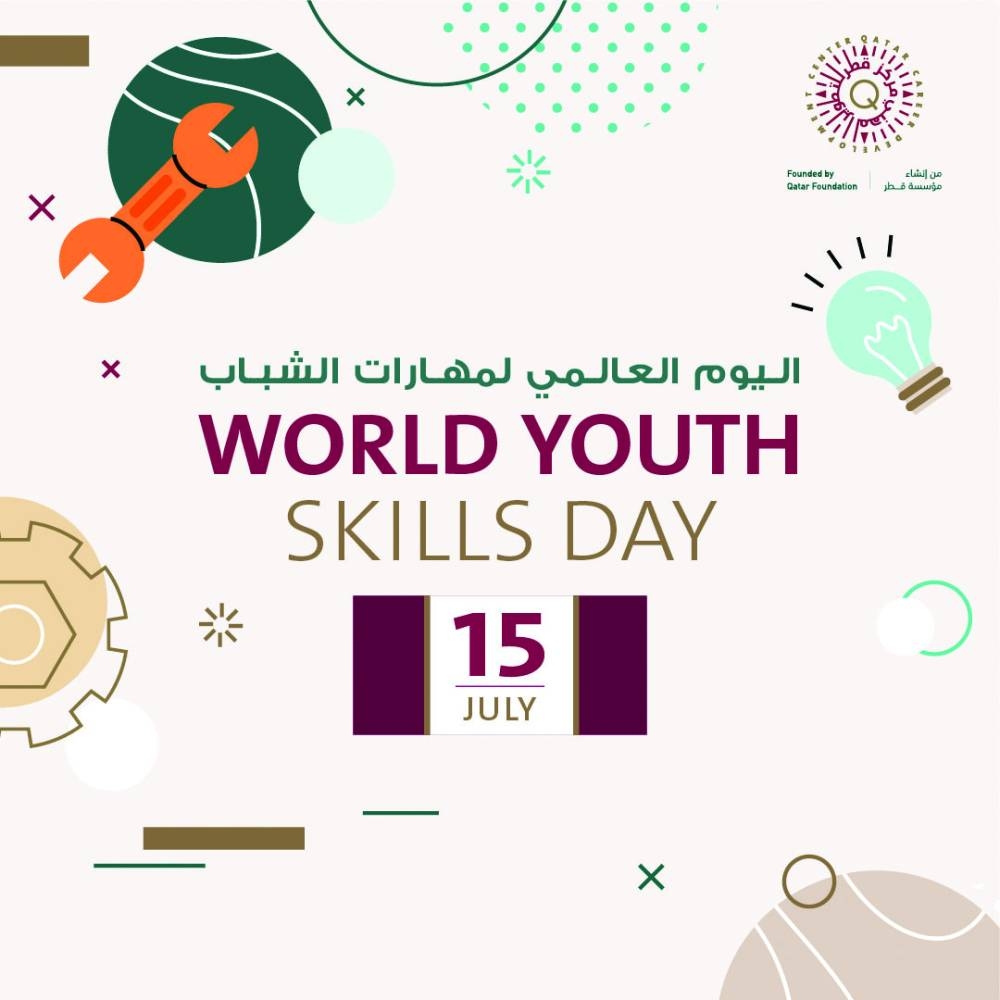As World Youth Skills Day is marked Saturday, Qatar Career Development Centre (QCDC) has emphasised the importance of career awareness and skill development for young individuals.
As the world rapidly evolves, it is clear that labour markets are at the forefront of these changes to enhance efficiency, productivity, and innovation. Therefore, it is crucial for youth to possess the necessary skills to thrive in this ever-changing workforce.
According to a QCDC press statement, World Youth Skills Day serves as a reminder of the critical role that career awareness and skill development play in shaping the career future of World Youth Skills Day serves as a reminder of the critical role that career awareness and skill development play in shaping the future career of the youth.
To gain insights into the most important skills for career preparation, QCDC conducted video interviews with students.
While the general propensity of the interviewees highlights the importance of soft skills, which are undoubtedly essential, it is crucial to recognise the significance of technical skills, hybrid skills, digital literacy and personal development skills in today's professional landscape. By nurturing a well-rounded skill set that encompasses various types of skills, individuals can position themselves for long-term success, adapt to evolving industry demands, and seize opportunities for career growth.
QCDC highlights that career awareness plays a pivotal role in empowering young individuals to make informed decisions about their future academic and career paths. Introducing career education and development services at an early stage can enable students to identify their interests, passions, and skills. This awareness allows them to align their educational pursuits with their career aspirations, ensuring a smoother transition into the workforce.
The video interviews were highly reassuring, as all the students interviewed had engaged with the concepts of career development and were aware of the importance of further building on their strengths and improving their skill sets. They also provided valuable insights into the skills that students believe are crucial for success in the workforce.
Communication; Time Management; Positive Thinking; Teamwork; Decision Making; Multitasking; Confidence; Conflict Resolution are some of the key soft skills that the youth need for a bright future.
While the interviewees highlighted the importance of 'soft skills, it is important to acknowledge that there are multiple other types of skills that also play a significant role in career success. One class of skills that deserves attention is technical or hard skills. These skills are specific to a particular field or industry and are acquired through formal education, training programmes, or hands-on experience Examples of technical skills include programming, data analysis, graphic design, financial analysis, and project management. Developing technical skills is crucial for individuals to excel in their chosen professions and contribute effectively to their organisations.
Additionally, there is a growing emphasis on hybrid skills or transferable skills. These skills encompass a combination of both technical and soft skills and can be applied across various industries and roles. Hybrid skills include skills like problem-solving, adaptability, critical thinking, and project management. They enable individuals to bring a diverse set of capabilities to the table and navigate different situations and challenges with agility.
Furthermore, digital literacy and technological proficiency have become indispensable skills in today's digital age. The ability to effectively use digital tools, navigate online platforms, leverage data and analytics, and adapt to technological advancements is vital for staying competitive in the modern workforce.

QCDC marks World Youth Skills Day
